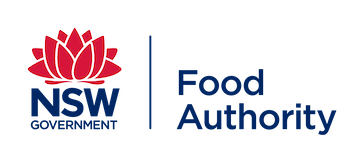Powers of authorised officers
The NSW Food Authority is responsible for regulating and monitoring food safety across the entire food industry supply chain in NSW - from paddock to plate.
Authorised officers from the Food Authority and local councils enforce the safe production and sale of food under the NSW Food Act 2003 and NSW Food Regulation 2015 (Legislation).
Role of an authorised officer
Food Authority officers are appointed by the Food Authority’s Chief Executive Officer and are based across NSW.
Their role is to ensure that all people working in the food industry meet their obligations under the Legislation, including that products are properly labelled, safe and suitable for human consumption.
Authorised officers may visit a food business to investigate a particular incident, such as a foodborne illness, or as part of a specific program. They may investigate complaints about labelling and food production or conduct an audit or inspection without prior warning. Officers may also:
- provide information, education and advice on food safety legislation and industry standards
- provide advice on developing and improving systems to aid compliance with requirements
- monitor compliance with or investigate breaches of legislation, including conducting interviews with management and staff
- investigate reports of unsafe, unhygienic, and/or unclean conditions, and
- initiate enforcement action, such as improvement notices, prohibition orders, penalty notices or commence a prosecution via the courts if they believe an offence has been committed under the Legislation.
The officer may be accompanied by a NSW Police officer, scientific expert or anyone considered necessary. They will talk to a range of people to gather information, provide advice or take appropriate action to ensure food safety requirements are met.
All officers carry a Certificate of Authority with photographic identification to produce upon request.
Powers of an authorised officer
Under Section 37 of the Food Act, an officer has the power to:
- enter and investigate any premises or food transport vehicle which they suspect is being used in connection with the handling of any food intended for sale
- verify a person’s identity by requesting someone’s name and residential address, conduct interviews and make inquiries, take photographs, films or audio or visual recordings
- take measurements, and make sketches, drawings or any other type of record
- gather information, examine and take or copy any records or documents and retain them for any reasonably necessary time
- examine food intended for sale, labelling or advertising material, including opening packaging
- open and examine any equipment
- take samples of any food or thing
- take samples of water, soil or anything that is part of the environment to determine whether it poses a food safety risk
- open, or ask to be opened, any container used for food storage, or any package
- stop and detain any vehicle used for storage and transport of food
- undertake investigations and enquiries to ascertain whether an offence has been or is being committed under the Legislation,
- seize food, vehicles, equipment, package or labelling or advertising material that is evidence of an offence under the Legislation
- issue notices:
- requiring owners and all employees and operators to remedy non-compliance with the Legislation
- prohibiting food production and sale continuing until the breach is fixed, and
- for on-the-spot fines for breaches of food safety Legislation.
Payment for samples
When obtaining a sample of food an officer must offer to pay for it. Under Food Regulation, Part 3, cl 12, the maximum amount payable is $10.
Entering a property or premises
When officers attend a food business the operator should ensure all staff/persons are:
- briefed about the rights of officers
- aware of their obligation to comply with a requirement of an officer, including to provide access to any part of the food business.
- If, during an investigation an officer identifies a breach of the Legislation, that officer will collect evidence of the:
- nature and seriousness of the breach, and
- steps taken by the food business to ensure that they meet their obligations under the Legislation, including that the food they produce or sell is safe to consume, suitable and properly labelled.
Any enforcement action taken by authorised officers will be actioned in accordance with compliance and enforcement policies.
Offences for not complying with authorised officers
Under the Legislation, it is an offence for a person, without a reasonable excuse, to:
- fail to comply with a requirement of an officer
- resist, obstruct, or attempt to obstruct, impersonate, threaten, intimidate or assault an officer in the course of their duties
- detain, remove or tamper with any food, vehicle, equipment, package or labelling or advertising material or other thing that has been seized, unless permitted by an officer, and
- provide any information or produce any document that the person knows is false or misleading.
Penalties for offences against officers
Offences against officers undertaking their duties under the Legislation can incur a maximum penalty of 500 penalty units ($55,000).
Qualifications of authorised officers
Officers must undergo intensive training to qualify as an authorised officer under the Act and may be required to undertake additional specialist courses and briefings to ensure their skills and knowledge are current and aligned with food industry best practice. Many officers also hold tertiary qualifications in science, health and food safety related disciplines.
Complaints about authorised officers
Complaints in relation to an authorised officer can be made to:
Director Compliance and Integrity Systems
PO Box 6682
Silverwater NSW 1811
1300 552 406
See also:
